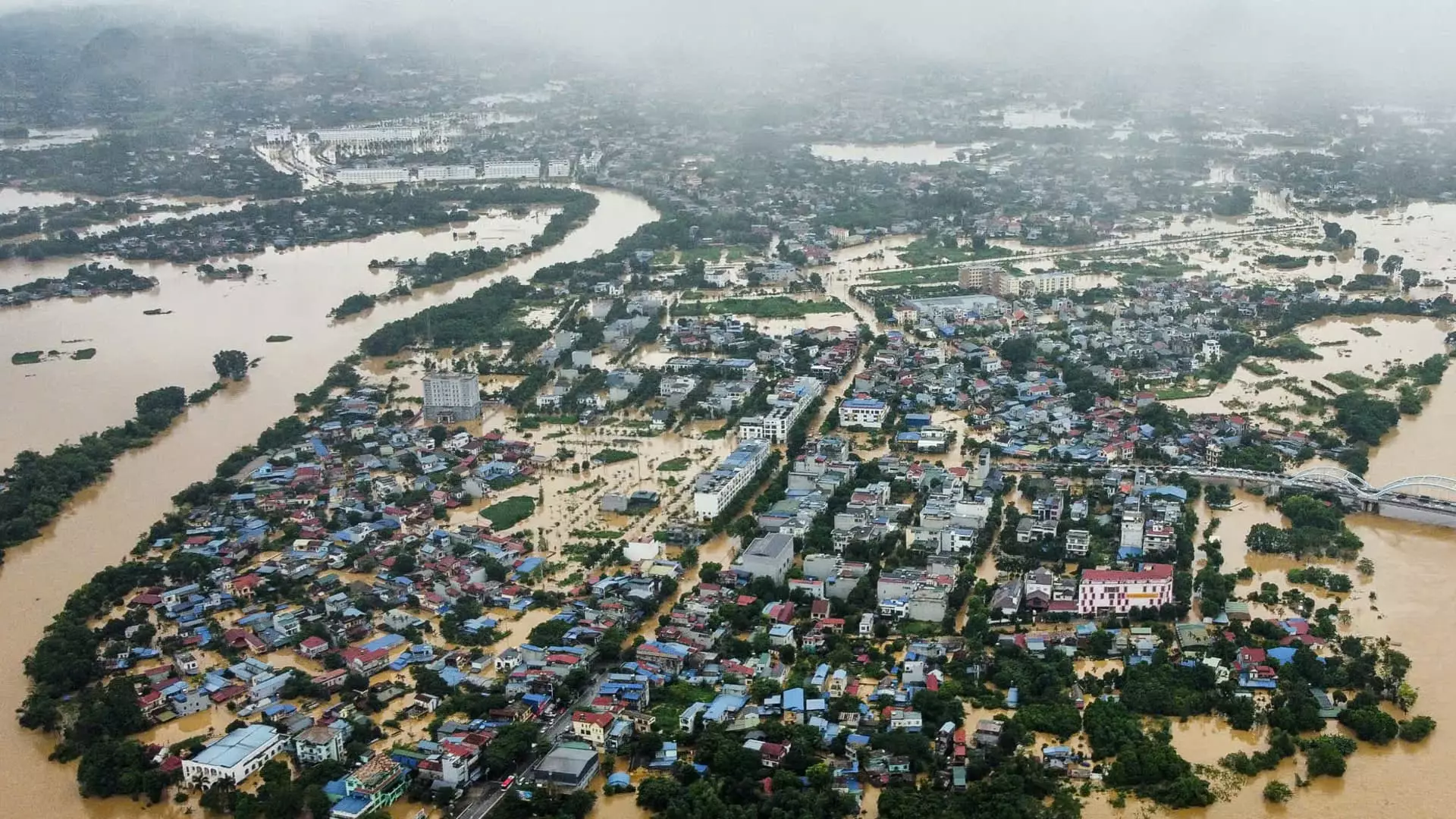As we step into 2025, the Indo-Pacific region finds itself in the aftermath of a year characterized by both struggles and resilience. Despite facing severe challenges—including natural disasters, economic uncertainties, and political upheaval—hope and triumph emerged in various forms. This article examines the contrasting narratives and vital themes that shaped the landscape of Asia and the Pacific in 2024.
The year 2024 will be remembered as particularly devastating for many nations in the Indo-Pacific. With climate change intensifying, extreme weather events became commonplace; the region witnessed an exponential increase in catastrophic incidents. Super Typhoon Yagi set a tragic precedent with its unprecedented destruction, affecting low-lying communities from the Philippines to southern China. The storm’s aftermath served as a grim reminder that while forecasts of climate change have been discussed for decades, the consequences are becoming more irretrievable with each passing year.
The flood imagery was stark in countries like India, Pakistan, and Nepal, where monsoon rains wreaked havoc, displacing millions and leading to significant casualties. Compounded by heat waves and droughts in other areas, these disasters painted a picture of a region wrestling with the ramifications of its changing climate. Community resilience was put to the test as regions struggled to support those affected by natural calamities, emphasizing the urgent need for effective disaster management and adaptation strategies.
In stark contrast to the environmental crises, another insidious challenge was underscored by the persistent decline in fertility rates across East Asia. Countries like South Korea, Japan, and China grappled with demographic shifts characterized by an aging population and declining worker demographics. Traditional societal expectations clashed with modern realities, as women increasingly opted for careers over starting families.
The implications of these demographic changes were profound, as a shrinking workforce could stifle economic growth and strain social services designed to care for an older population. This crisis prompted urgent discussions regarding policy interventions to encourage family growth, from financial incentives to enhancing childcare provisions. As nations embarked on this journey, the stakes for the future hung heavily in the balance.
2024 also became a pivotal chapter for many governments in the Indo-Pacific, marked by elections that delivered mixed outcomes for democracy. Countries like Bangladesh faced political turmoil, with long-serving leaders silencing dissent only to face the wrath of uprisings. South Korea’s political scene became particularly volatile as martial law was enacted following electoral defeats, leading to severe public backlash.
Conversely, Taiwan emerged as a beacon of democratic vibrance, illustrating that progress and stability can coexist under false narratives of crisis. India saw its own coalition governments form, while Indonesia took democratic strides in its transition of power. Collectively, these events illustrated a mosaic of political trajectories across the region. Amidst the chaos, civil society thrived, with active citizens pushing for accountability and transparency from their leaders.
As political and environmental challenges persisted throughout 2024, South Korea continued its cultural resurgence under the banner of the Hallyu wave. The popularity of K-pop, K-dramas, and other cultural exports exhibited an unprecedented appetite on the global stage. 2024 broke records for Korean cinematic productions on platforms like Netflix, encapsulating the fusion of storytelling and artistry that captivated viewers.
The phenomenon extended beyond entertainment; it has significant economic implications too. By 2030, the Hallyu wave is projected to generate an estimated $198 billion, reflecting the nation’s ability to leverage culture for soft diplomacy and economic growth. The cultural exchange transformed perceptions of South Korea globally, showcasing an ever-expanding market that holds potential for enriched international partnerships.
Amid the highs and lows of 2024, an unlikely source of joy emerged from Thailand in the form of Moo Deng, an endearing baby pygmy hippopotamus. This “celebrity” hippo melted hearts worldwide, demonstrating the power of social media to transcend cultural barriers. Such moments of levity serve as crucial reminders of our shared humanity amidst the chaos.
The phenomenon of Moo Deng embodies the unexpected ways that culture and social media can bring people together during tumultuous times. Even NBC’s “Saturday Night Live” creatively capitalized on her internet fame, showcasing how joy can be found in the most unusual places. It reminds us that in the face of overwhelming challenges, laughter and connection are vital for healing.
In retrospect, 2024 script was an intricate tapestry woven from threads of adversity, resilience, and cultural vitality. While significant challenges lay ahead for the Indo-Pacific, the collective spirit of its people showcased their potential to overcome. As we move into another year, reflection upon the past is essential, not just to learn from mistakes but also to celebrate the triumphs that inspire hope for a better future.

Leave a Reply